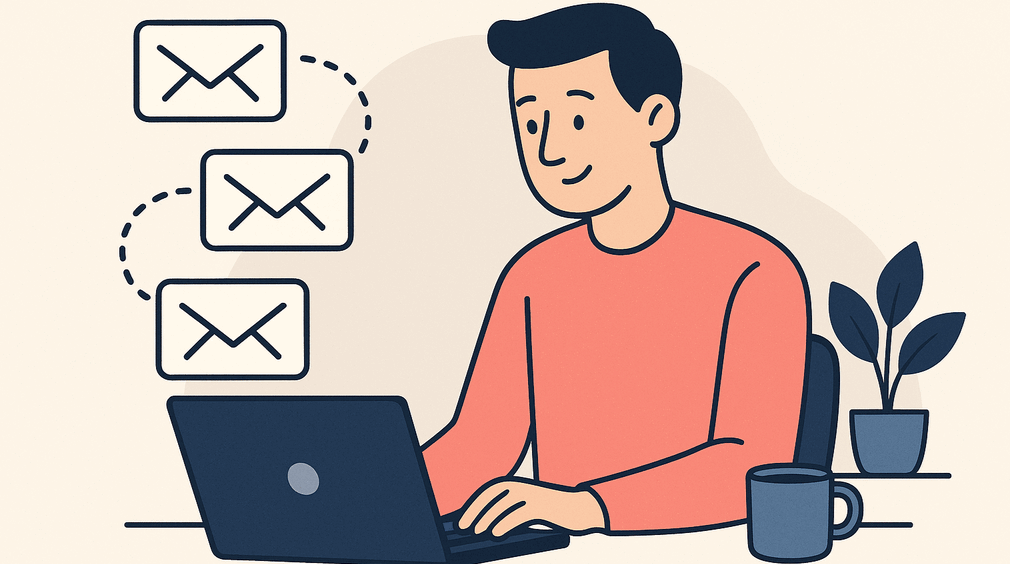No Activation Email Sequence = Silent Signups
"No emails = no engagement. Your users forget you exist."
Imagine signing up for a new tool and receiving… nothing. No welcome email. No nudge. No tips. No context.
Your user doesn’t hate your product—they just forgot it. Their inbox was empty. Their curiosity faded.
Welcome to the No Activation Email Sequence leak—one of the most preventable leaks in SaaS.
The Leak: You Don’t Nurture New Users
- Users often need reminders, guidance, and nudges to come back.
- Activation emails drive up to 19% higher product usage in the first 7 days.
- Yet, 45% of SaaS companies don’t use them effectively.
"No communication post-signup = no momentum. Email is your second chance to activate." — Ramli John
The Psychology Behind It
According to the Zeigarnik Effect, people remember unfinished tasks better than completed ones. When a user signs up but doesn’t reach value, they feel a psychological gap—if you remind them.
But if you don’t follow up, they’ll forget and move on.
Well-timed emails re-trigger attention, reinforce value, and lower cognitive friction. You’re not spamming—you’re helping them succeed.
Examples of Effective Activation Email Sequences:
- Duolingo: Day 1: Welcome; Day 2: Reminder to practice; Day 5: Streak building tips.
- Notion: Shows popular templates and how-to guides personalized to use case.
- Calendly: Day 1: Connect your calendar; Day 2: Book your first meeting; Day 5: Embed link in email signature.
How to Detect This Leak
Use ThriveStack to run an activation communications audit:
- Audit Email Sequence Coverage
Are you sending a welcome, onboarding, and reminder series? - Measure Open and Click Rates
Which emails get ignored? Where is drop-off highest? - Correlate Email Touches with Activation
Does receiving 2+ emails improve Time to Value or usage? - Segment by Source & Persona
New users from paid ads may need more guidance than organic ones. - Detect Silent Signups
Find users who signed up but didn’t click, open, or return.
ThriveStack Features That Help
- Activation Email Coverage Map
Visualize which users received which emails and when. - Email Touchpoint to Activation Correlation
See how email sequences impact engagement. - Funnel Drop-off Analysis by Email Open
Are non-openers dropping off more? - Nudge Recommendations
ThriveStack suggests when to email and what to say based on behavior. - Silent Signup Detector
Identify new users who haven’t interacted post-signup.
Business Impact of Fixing This Leak
- Higher 7-day retention and usage
- Better TTV (Time to Value)
- Improved trial-to-paid conversion rates
- Less churn from unengaged users
- Reduced CAC via better onboarding ROI
"The moment someone signs up is the moment they’re most likely to engage. Don’t waste that window." — Elena Verna
What To Do Now
- Create a 5-Email Sequence
Welcome, Value Teaser, Milestone Reminder, Help/FAQ, Re-engagement. - Use Personalization
Reference the signup source, role, or actions taken. - A/B Test Subject Lines
Focus on activation-driving opens and clicks. - Track Everything
Use ThriveStack to measure what works and iterate.
Conclusion
A missing activation email sequence turns excited new users into silent sign-ups who slip away before they ever feel your product’s value. By adding a short, personalized series—welcome, value teaser, milestone nudges, help, and re-engagement—you keep your brand top of mind, guide users to “aha” moments faster, and convert more trials to paying customers. Treat every signup like a ticking clock: the sooner you land in their inbox with timely, helpful context, the sooner curiosity becomes commitment.
Ready to Fix Your Activation Funnel
Don’t let users go dark after signup. Re-engage them.
👉 Sign up for ThriveStack and uncover where your emails are missing, what’s driving re-engagement, and how to boost activation.
It takes less than 10 minutes to start.
Frequently Asked Questions (FAQ)
1. What is an activation email sequence?
A structured series of emails (typically 3-5) sent right after signup to welcome users, highlight quick wins, and nudge them toward first-value actions.
2. Why do “silent signups” hurt SaaS growth?
Users who register but never engage add to your acquisition costs without contributing to usage, referrals, or revenue—skewing metrics and inflating churn risk.
3. How many emails should I send in the first week?
Most high-performing SaaS products send 3–4 emails in the initial 7 days: Day 0 welcome, Day 1 quick-start guide, Day 3 milestone reminder, Day 6 “need help?” touch.
4. What metrics prove my sequence is working?
Track open rate, click-through rate (CTR), activation rate (users reaching first key action), and 7-day retention. Correlate email touches with in-app events to see impact.
5. Won’t multiple emails feel spammy?
Not when they’re personalized and value-driven. Segment by persona and behavior; send concise tips that solve the user’s next task rather than generic promos.
6. How can ThriveStack help?
ThriveStack automatically audits your current sequences, visualizes who received (or missed) each touchpoint, and recommends optimized timing, subject lines, and content blocks based on actual user behavior.

